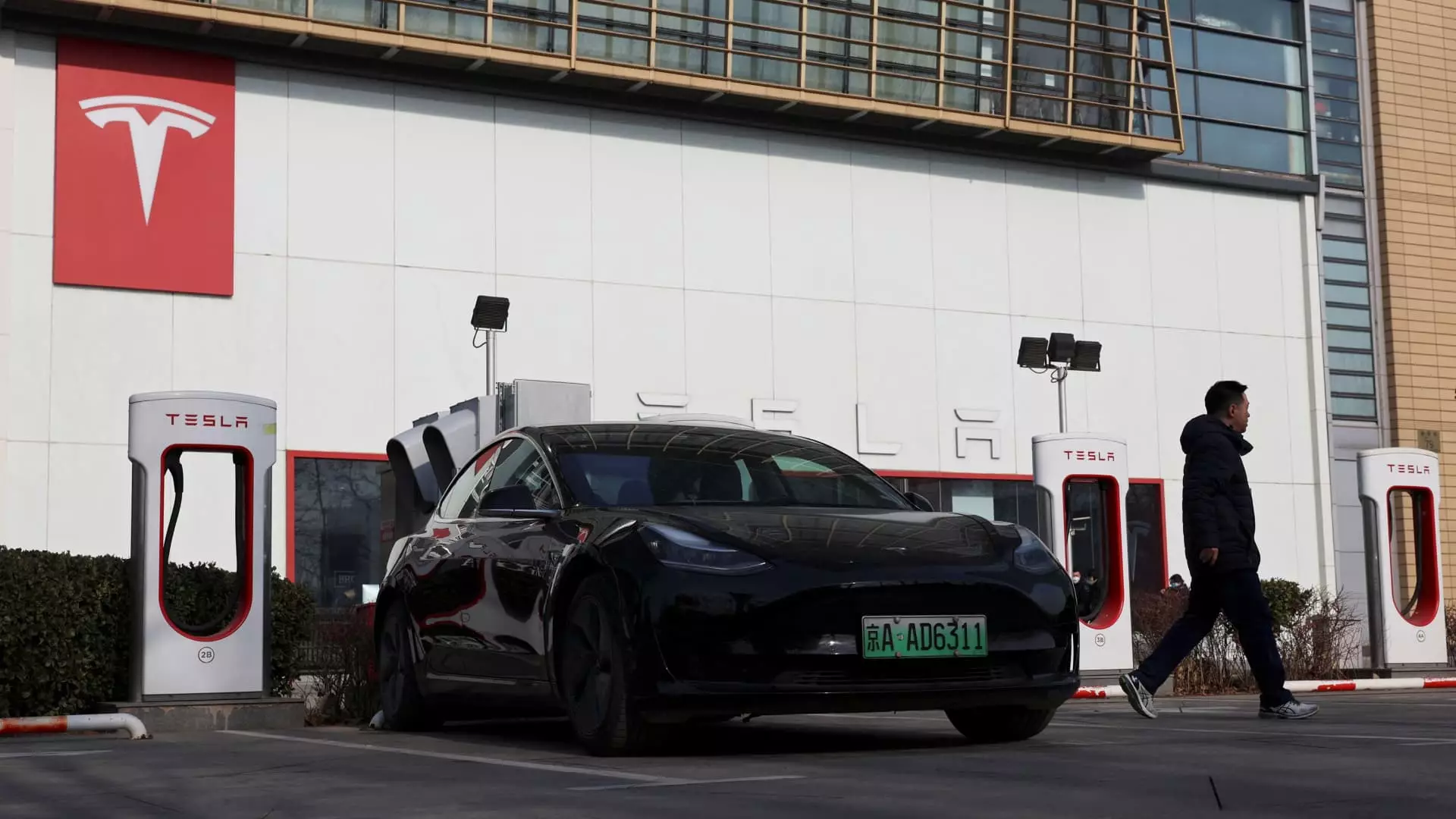As we progress through 2024, it becomes increasingly evident that the dynamics of the Chinese automotive market are shifting significantly. With a powerful focus on electric vehicles (EVs), the landscape is changing, bringing local players like BYD to the forefront while traditional foreign automakers seem to be losing their grip. The year 2025 is anticipated to be pivotal as local companies solidify their authority in this burgeoning market.
BYD stands as a testament to how local manufacturers can thrive in a rapidly evolving market. As of October 2023, BYD captured 16% of the Chinese automotive sector, a significant increase from 12% the previous year. This growth reflects a larger trend where new energy vehicle (NEV) leaders are beginning to dominate while foreign brands gradually recede. Analysts from Nomura, in their recent global autos outlook, suggested that BYD is likely to further establish its market position in 2025, projecting its revenue growth and broader acceptance in the consumer base.
For the first time in the third quarter of 2023, BYD’s revenue surpassed that of Tesla, underlining its robust performance and growing influence. Despite Tesla’s reputation as a premium electric vehicle manufacturer, BYD’s strategic focus on hybrid models has enabled it to cater to a wider range of consumers. This approach, juxtaposed with Tesla’s higher price point, emphasizes a growing bifurcation in consumer preferences within the Chinese market.
While BYD takes the lead, Geely remains a significant contender, holding an 8% share of the Chinese automotive market. Recent evaluations from analysts suggest that Geely is poised for growth as it benefits from an expanding electric vehicle penetration, expected to reach 40% in the coming years. The company’s ambitious target of 2.6 million units sold in 2025 highlights a significant opportunity, especially as they leverage the prowess of their brands, including Volvo and the U.S.-listed Zeekr.
The landscape for emerging electric vehicle manufacturers in China is harsh, yet competitive. Traditional automotive giants like General Motors are facing challenges as they adapt to the fast-moving EV market. It’s indicative of a broader issue where established players must reinvent themselves to survive, leading to plant closures and restructurings to cut costs and boost efficiency.
Chinese electric vehicle startups are witnessing a fragmented yet vibrant growth pattern, despite their combined market presence still being overshadowed by giants like BYD and Geely. Companies like Yongda, which are engaged in distributing various EV brands—including Huawei’s Aito—are betting on the growing acceptance of technology-influenced vehicles. Notably, Yongda projects that sales of Huawei-powered vehicles could exceed one million units in the near future, signifying the importance of tech collaborations in the automotive space.
Similarly, other startups like Nio and Leapmotor are experiencing their share of growth, with analysts praising Leapmotor for its prudent spending in research and development compared to its rivals. This translates to an effective strategy that may allow it to innovate without overextending financially. The investment in product development is seen as crucial as companies aim to improve their offerings in an increasingly competitive landscape.
The shift towards electric vehicles is not just a trend; it reflects a changing mindset among consumers in China, who are increasingly prioritizing sustainability and technological advancements in their vehicle choices. However, this trend also forces companies to make significant strategic decisions. For instance, as analyzed by Citi, leading players like Nio anticipate achieving financial stability by reining in R&D costs and pushing for increased production and sales.
The emphasis on battery technology and hybrid models signifies a broader understanding of what consumers are looking for. As battery life, efficiency, and vehicle performance remain at the forefront of consumer priorities, automakers will need to be agile, responsive, and innovative to thrive.
The road to 2025 is laden with potential for local players in China’s electric vehicle market. While companies like BYD and Geely set the pace, the reality is that innovation and efficiency will define success amidst rising competition from both established names and emerging startups. As the market evolves and consumer needs change, staying ahead of the curve will require acute strategic insight and a firm commitment to sustainability.
As we look toward 2025, it appears that China’s automotive landscape is entering a new chapter, one where local players are not only making their presence felt but are indeed charting the course for a new era in mobility.


Leave a Reply